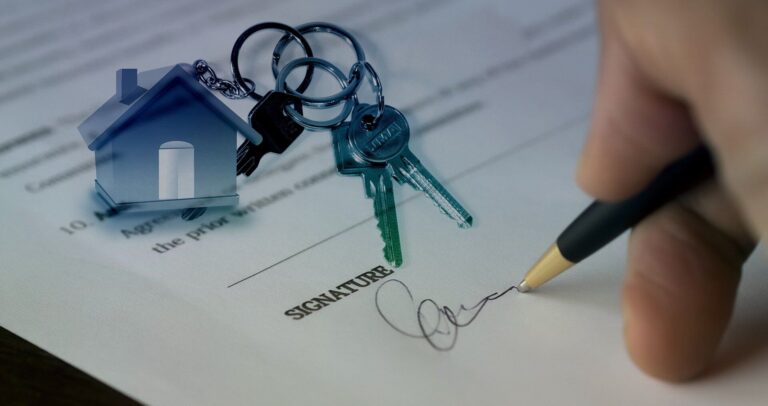Buying a home is an exciting experience, but it’s also one that comes with a great deal of responsibility. One of the most important steps in the home-buying process is the home inspection. An inspection helps you understand the true condition of a property and can prevent you from making a costly mistake. Whether you’re buying your first home or your fifth, knowing what to expect during a home inspection can help you make an informed decision and protect your investment.
What is a Home Inspection?
A home inspection is an evaluation of the property you intend to buy, conducted by a licensed home inspector. This professional assesses the home’s structure, systems, and components to identify any potential issues that may need repairs or replacements. The goal of the inspection is to ensure that the property is safe, functional, and in good condition before you move forward with your purchase.
If you’re purchasing a home, it’s always a good idea to schedule a home inspection after your offer is accepted. Most real estate agents in the USA recommend it, even if the property appears to be in perfect condition. An inspection helps uncover issues that might not be visible during a typical walk-through.
What’s Included in a Home Inspection?
A thorough inspection includes multiple areas of the home. The inspector will evaluate both the interior and exterior of the property, checking for problems that could affect the home’s livability and long-term value. Here’s what you can expect:
1. Foundation and Structure
The inspector will examine the foundation for cracks, signs of settling, and any movement. This includes checking for structural issues in the walls, roof, and floors, which could signal a need for major repairs.
2. Roof and Attic
The roof is one of the most expensive parts of a home to replace. The inspector will look for damaged shingles, leaks, and signs of wear and tear. They’ll also inspect the attic for proper insulation and ventilation, as issues here can lead to high energy bills or water damage.
3. Plumbing
A thorough plumbing inspection involves checking the water pressure, pipes, faucets, drains, and toilets. The inspector will look for leaks, signs of corrosion, and water damage. The age and condition of the hot water heater will also be evaluated.
4. Electrical Systems
Your home inspector will examine the electrical system, checking the circuit breaker panel, wiring, outlets, and light fixtures. They’ll look for outdated or unsafe wiring, which can be a significant fire hazard.
5. HVAC (Heating, Ventilation, and Air Conditioning) Systems
The inspector will test the heating and cooling systems to ensure they are in good working order. They’ll also check the ductwork, furnace, and air conditioner for potential issues. HVAC repairs can be costly, so it’s crucial to understand the system’s condition before buying a home.
6. Exterior Features
The inspector will evaluate the exterior of the home, including siding, windows, doors, and any other structural components. They’ll look for signs of water damage, rot, or pest infestation.
7. Pest Infestation
In some areas, inspectors will check for termites or other wood-damaging pests. Even if pest inspection isn’t included in the standard home inspection, you can always request an additional pest inspection if needed.
What to Watch For During the Inspection
While the inspector is the expert, it’s important for you to attend the home inspection if possible. This way, you can ask questions, take notes, and understand the home’s condition firsthand. Here are some key things to keep an eye on:
1. Signs of Water Damage
Water damage is one of the most costly issues to repair. Look for stains on walls or ceilings, especially near windows, pipes, or the roof. The inspector will check for leaks, but it’s always a good idea to ask them about any visible damage you see.
2. Electrical Problems
Electrical issues are serious safety hazards. Make sure the inspector checks outlets, switches, and the main panel. If the home has outdated electrical systems, it could cost thousands of dollars to bring up to code.
3. Roof Condition
The condition of the roof is one of the most important factors in a home’s value. Roof repairs or replacement can be costly, so make sure your inspector provides a detailed report on its age, condition, and whether repairs are necessary.
4. Foundation Issues
Foundation issues are major red flags. Look for cracks in the foundation, sloping floors, or doors that don’t close properly, as these could signal structural problems. These types of issues often require expensive repairs and should be taken seriously.
5. HVAC Systems
Ensure that the heating and cooling systems are functioning properly. The age of the HVAC system is also a consideration; older systems may need to be replaced soon, which could lead to unexpected costs.
After the Home Inspection: What Happens Next?
Once the home inspection is complete, the inspector will provide you with a detailed report that outlines any issues discovered. This report may include recommendations for repairs, maintenance, and further evaluations. As a buyer, you have several options at this stage:
1. Request Repairs
If the inspection reveals significant issues, you can request the seller to repair them before closing. Depending on the market conditions, the seller may agree to make the repairs, offer a credit, or reduce the home price.
2. Negotiate a Price Reduction
If the seller is unwilling to make repairs, you can negotiate a price reduction to account for the cost of fixing the issues yourself. This can be an effective way to protect yourself from having to spend money on unexpected repairs.
3. Walk Away from the Deal
If the inspection reveals serious problems, and the seller is unwilling to cooperate, you can back out of the deal. Most real estate contracts include a contingency that allows you to cancel the purchase if the inspection uncovers significant issues.
Why a Home Inspection is Essential
A home inspection may seem like an additional cost or step, but it’s one of the most valuable investments you’ll make when buying a home. A thorough inspection can save you from buying a property with hidden issues that could cost you tens of thousands of dollars down the road. Even if the home appears to be in great condition, an inspection can uncover hidden problems that may not be visible at first glance.
Additionally, a real estate agent in USA can help you understand the inspection report and navigate any negotiations or repairs that need to be addressed. It’s always a good idea to have a professional by your side who can advocate for your best interests during this process.
Conclusion
A home inspection is a crucial step in the home-buying process. It provides you with a clear understanding of the property’s condition and ensures that you’re making an informed decision. By being present during the inspection and asking questions, you’ll be better equipped to handle any issues that arise. Remember, buying a home is a big financial commitment, and a home inspection can help you avoid making a costly mistake.
“The goal isn’t just to buy a house—it’s to find a home that will last, grow, and serve you well for years to come.”
Q&A Section
Q: Do I really need a home inspection?
A: Yes! Even if the house seems perfect, a professional inspector can uncover hidden issues that could save you from expensive repairs down the line.
Q: How long does a home inspection take?
A: Typically, a home inspection takes around 2 to 4 hours, depending on the size of the property. It’s a thorough process, so plan to be present for the duration.
Q: Can I skip the inspection if the house is newly built?
A: It’s still recommended to have a home inspection, even for new builds. Sometimes, builders make mistakes or miss minor details that can be caught during an inspection.
How We Can Help You Transform Your Home — and Your Life
Imagine a living space that truly feels like your sanctuary — organized, beautifully decorated, and perfectly suited to your style.
Our Home Transformation Bundle is packed with expert tips for decluttering, organizing, and decorating your home. Whether you’re aiming for a modern, traditional, or mid-century look, these insights are designed to help you create a space that inspires calm, creativity, and joy.
But sometimes, no matter how much you declutter or redecorate, a fresh start is the real answer.
If you’re feeling like it’s time for a bigger change — a new home — we’re here for that too.
Moving forward is easier with the right partner.
The numbers speak for themselves: 87% of home buyers and 89% of sellers trust real estate agents to guide them.
Agents help you price, negotiate, organize paperwork, and avoid costly mistakes. With a true professional by your side, you’ll feel confident every step of the way.
Ready for your next chapter?
Fill out our quick form today, and we’ll personally match you with a trusted real estate agent who understands your needs — and is ready to help you achieve your goals.
It’s fast, simple, and designed to make your transformation journey smooth and exciting.
Your dream space is waiting. Let’s make it a reality — starting today.












